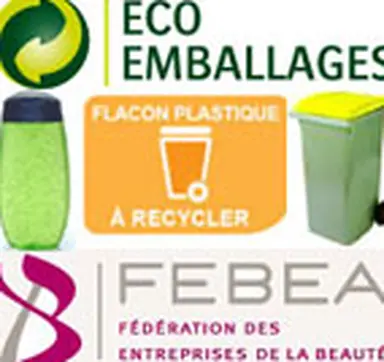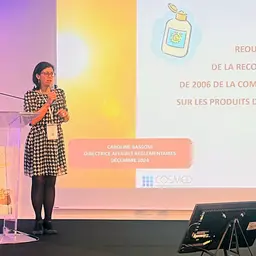
In 2012, Eco-Emballages has modified its contributions calculus, introducing a bonus-penalty system with a tougher eco-modulation. How to declare and how getting through the maze? A presentation and explanations have been delivered by François Demeure di Latte, the Director of the Eco-Emballages Finance and Management Department, during an information conference, titled “Les emballages cosmétiques” (Cosmetics’ Packaging), organised by the French FEBEA on 17 June 2013.
What is Eco-Emballages?
Eco-Emballages was created in 1992 by an order, in France, to put in place the selective collection, i.e. to organise, oversee and help in the sorting and recycling of household packaging.
It is a private limited company, agreed by public authorities, with corporate governance (comprising L’Oreal, Unilever, Procter & Gamble), which is given a general-interest mission for the benefits of the consumer-citizen. It is part of Packaging Recovery Organisation Europe (PRO-Europe), the European organisation responsible of collecting, sorting and recycling household packaging.
In France, Eco-Emballages encourages the companies targeted by the
Articles R.543-53 to R.543-65 of the French Environmental Code
(dedicated to the management of household packaging waste) to take responsibility of their obligation to recycle the packaging of their households products.
Thanks to the Green Dot fees paid by companies, Eco-Emballages gives subsidies to the local authorities that put the system in place, thus, adding environmental and societal value.
In 2005, Eco-Emballages and Adelphe (another company agreed by authorities for sorting household packaging) have been combined to make sorting durable in France.
In 2012, Eco-Emballages met the target agreed by the so-called “Grenelle of the Environment", a commitment by the French government: 100,000 tonnes of household …












